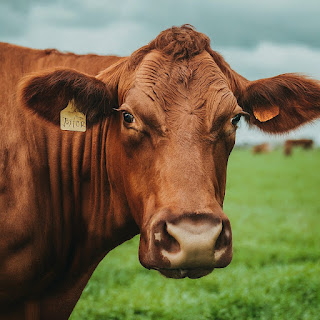I came across, protect the wild on my insta and read about their campaigns for badgers, hunting etc. which made me sign their petition and write the below article.
The Convenience of Cruelty: Exposing Hypocrisy in Our Treatment of Animals
For generations, we've relied on cows, often confining and manipulating them for milk production. However, this dependence comes at a cost, not just for the cows, but for badgers.
The Flawed Narrative:
Badgers are blamed for transmitting bovine tuberculosis (bTB) to cattle herds. The "solution"? Culling badgers across Europe, particularly in the UK and the government has provided license to cull. Till now 2.5lakhs badgers are culled and counting.
The hypocrisy lies in our treatment of cows themselves. We exploit them for milk, disregarding their welfare. When cows contract bTB, they are slaughtered, not treated. Cheap way out for "businesses".
Do We Need Dairy?
But wait, don't we need milk for strong bones? Not quite. Calcium might be the go-to answer during childhood, but our bodies require a symphony of nutrients for bone health – magnesium, zinc, vitamin D, and even potassium. These are readily available in plant-based sources like leafy greens, nuts, seeds, and fortified dairy alternatives.
The separation of calves from their mothers for milk production adds another layer of cruelty. These intelligent, social creatures experience immense emotional distress at this forced separation. Cows are not mere machines; they are sentient beings capable of feeling pain and forming bonds.
A Flawed Solution and the Need for Alternatives:
Instead of exploring alternatives like stronger fences or badger vaccination programs, culling is seen as a quick fix. However, science shows culling disrupts badger social structures, potentially worsening the spread of bTB.
Leaders who endorse badger culling often lack a fundamental understanding of the delicate balance of the natural world. Shouldn't our leaders be surrounded by and actively seek out scientific expertise before making decisions with such far-reaching ecological consequences?
Now if the government of Europe finds a convenient way out rather than being creative and compassionate, shouldn't people think who are they electing as their leaders. Often, powerful agricultural lobbying groups have a significant influence on policy decisions. These groups prioritize short-term economic gains over long-term solutions.
Should leaders making crucial decisions about wildlife management be so heavily influenced by narrow special interests, especially when more sustainable alternatives exist?
Quote:
Several scientific studies have found culling has had no positive impact. But according to Defra, data suggests that culling has contributed to an overall reduction of approximately 56% in cattle TB incidence rates across the first 52 cull areas after four years of badger culling.
Unquote
By thegaurdian.com
A Double Standard?
We condemn the culling of humans during pandemics, but remain comfortable with badger extermination. Why?, because we consider ourselves superior to other species and the ecological affect. Both scenarios highlight the "necessary evil" argument, sacrificing individuals for the perceived greater good, rather "richer and powerful groups".
The Need for Change:
Perhaps it's time to re-evaluate our dependence on a system that prioritizes profit over animal welfare. Can we find alternatives that don't rely on animal suffering? Vaccination programs for badgers and cattle, alongside improved farm biosecurity measures, offer a more ethical path forward.
The Ecological Impact:
Badger culling ignores their vital role in the ecosystem. As apex predators, they control rodent populations and aerate the soil, promoting plant growth. Leaders who endorse badger culling often lack a fundamental understanding of the delicate balance of the natural world. Shouldn't our leaders be surrounded by and actively seek out scientific and sustainable expertise before making decisions with such far-reaching ecological consequences?
The Takeaway:
The badger cull exposes our flawed relationship with animals. We exploit them and discard them when inconvenient. It's time to choose compassion and scientific solutions over convenience and violence. The future of wildlife, and our own humanity, depends on it.












